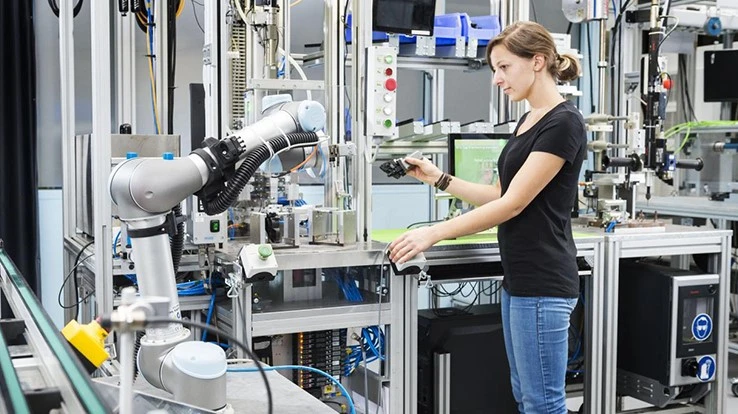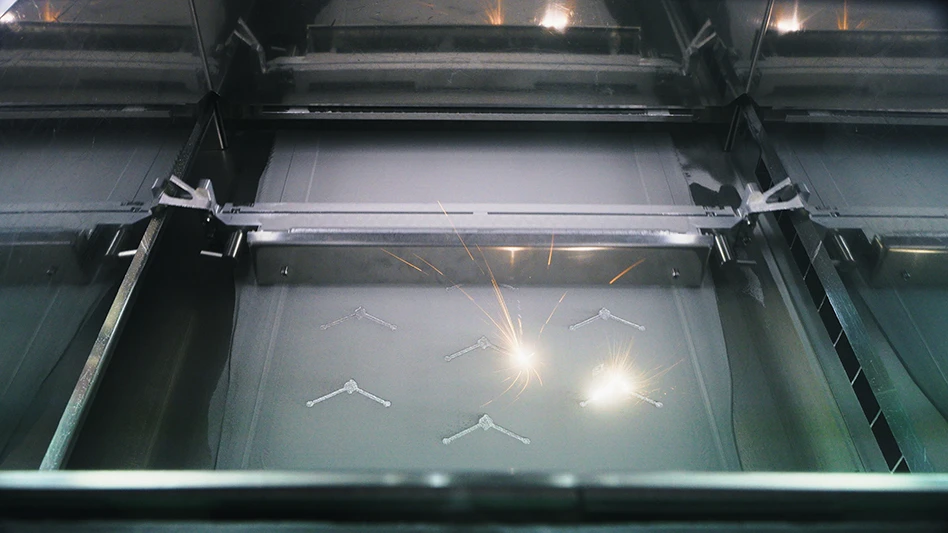
Photo: Sandra Goettisheim, KIT
Clients request customized solutions, product lifecycles become shorter, new business models happen and industrial production must keep pace with these dynamic changes. At Karlsruhe Institute of Technology (KIT), an interdisciplinary group of researchers from mechanical engineering, electrical engineering, information technology, and computer science is now working on an agile production system that autonomously and dynamically adapts to changing product specifications in remanufacturing. This AgiProbot project (German acronym for Agile production system based on mobile, learning robots with multi-sensor technology for uncertain product specifications) is funded by the Carl Zeiss Foundation with €3 million through February 2024.
"Industrial production has to supply increasingly customized products and be highly efficient at the same time," says Professor Gisela Lanza, spokesperson of the AgiProbot project. Conventional solutions for optimizing classical line production are reaching their limits, because all strategies assume the different production scenarios to be known in advance. "This is not sufficient to cope with increasing volatility. In the future, we will not be able to think about everything in advance."
The team works on an agile production system that integrates all relevant subsystems, learns autonomously, responds dynamically to requirements not known in advance, and determines the best possible solution. Multi-modal sensors simultaneously measure supplementary environmental data, such as motion and contact. They are implemented among others in plant technology, industrial robots, and in vehicles and collect the production-relevant data. Based on these data, driverless transportation systems supply the modular production stations with the necessary goods. Moreover, collaborating, mobile, and autonomous robots use the data to adapt their action strategies.
Using artificial intelligence (AI) and already existing technical knowledge, the manufacturing system applies special learning algorithms. They also support learning from the movements and glances of human workers with whom the industrial robots collaborate.
The project is aimed at developing a demonstrator factory for remanufacturing of electric motors. In an agile and automated process, the motors are to be disassembled and prepared for reuse.
"Remanufacturing is an area of high economic relevance that illustrates future importance of holistic, domain-overlapping, and smart production systems," says project coordinator Dr. Benjamin Häfner.
So far, the associated process steps, such as disassembly, cleaning, inspection, or reworking, have usually been carried out manually and separately, because the quality of the components differs significantly and the resulting flows of goods are too complex for classical automation.
The project is coordinated by KIT's Institute of Production Science (wbk). The project partners are the Institutes of Industrial Information Technology (IIIT), for Anthropomatics and Robotics (IAR), for Materials Handling and Logistics (IFL), and for Human and Industrial Engineering (ifab) of KIT.
Latest from Today's Medical Developments
- HERMES AWARD 2025 – Jury nominates three tech innovations
- Vision Engineering’s EVO Cam HALO
- How to Reduce First Article Inspection Creation Time by 70% to 90% with DISCUS Software
- FANUC America launches new robot tutorial website for all
- Murata Machinery USA’s MT1065EX twin-spindle, CNC turning center
- #40 - Lunch & Learn with Fagor Automation
- Kistler offers service for piezoelectric force sensors and measuring chains
- Creaform’s Pro version of Scan-to-CAD Application Module





